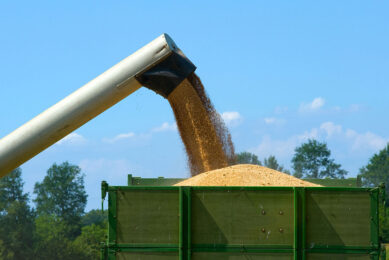Kenya extends duty waiver on feedstuff imports

The Kenyan government has passed a regulation extending the duty-free imports regime for feedstuff in a bid to tackle the persisting feed industry crisis.
Similar to several other neighbouring countries, Kenya is grappling with a major humanitarian crisis, as the region endured 5 consecutive seasons of drought from 2020 to 2023.
The Association of Kenya Feed Manufacturers (AKEFEMA) estimated that in 2023, the cost of a 70 kg bag of dairy feed jumped to US$19.65, and layers to US$29.4.
However, the government’s extension of the duty waiver in August 2023 brought some relief, chilling the price rally, the organisation told local news outlet, Star. Some poultry farmers who abandoned their businesses are even contemplating comeback plans, a sign of hope in the industry.
Under the regulation, the duty-free regime covers imports of yellow corn, soybeans and a range of feed premixes.
Shrinking herds
In previous years, the drought cost the Kenyan livestock sector a fair share of its livestock industry.
According to the Economic Survey 2023 published by the Kenya National Bureau of Statistics, the number of cattle and calves slaughtered increased by 11.6% from 2.0 million heads in 2021 to 2.2 million heads in 2022.
Similarly, the number of sheep, goats and pigs slaughtered also increased by 14.9% and 9.5% to 10.8 million heads and 389,300 heads in 2022, respectively.
Several non-government organisations voiced concerns that the trends could imperil the country’s already dire food security.
GMO needed
However, the duty waiver may not be enough to make a difference for the long-suffering Kenyan feed sector.
Paul Kamau, AKEFEMA CEO estimated that the country’s reliance on feedstuff imports is close to 80%, and in addition to the devastating impact of the drought, the industry was hit by a mix of other factors, such as a war in Eastern Europe, and the Red Sea crisis. He added that on top of that, Kenyan currency devaluation spurred prices for local farmers.
To deal with the rising costs, AKEFEMA called on the authorities to allow imports of genetically modified organisms (GMO), currently prohibited in Kenya. However, the organisation emphasised that it sees it only as a temporary solution to plug the gaps between the supply and the demand.
Kenyan feed manufacturers are confident that long-term solutions are needed to address the existing challenges, like establishing new sources of feedstuff, for example, by developing insect protein sector.








